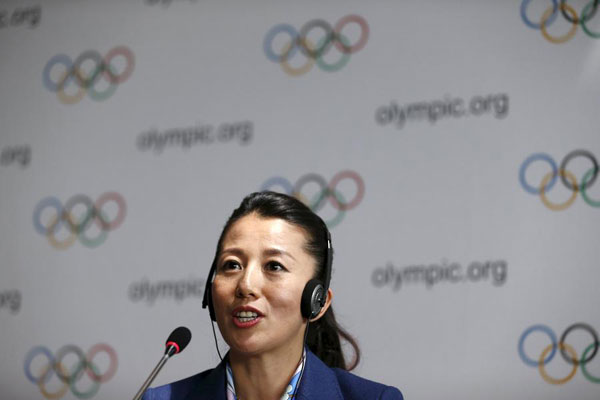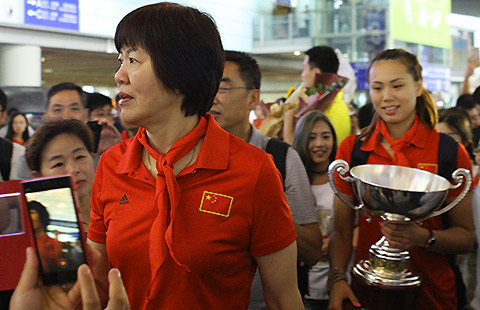Beijing's bid to host 2022 Winter Olympics enters final lap
By Sun Xiaochen (chinadaily.com.cn) Updated: 2015-07-30 17:20 |
|
Chinese short track speed skater and International Olympic Committee (IOC) member Yang Yang addresses the media during a news conference after the briefing for IOC members by the 2022 Winter Olympic Games candidate city of Beijing at the Olympic Museum in Lausanne, Switzerland, June 9, 2015. [Photo/Agencies] |
Beijing's existing venues, accommodation facilities as well as event-running expertise gained from the 2008 Olympics have made it a reliable choice.
"We will deliver 100 percent what we promised," said Wang Hui, deputy secretary-general and spokeswoman for the Beijing 2022 bid committee.
"Not only natural environments but also hosting capacity, the volunteer team and marketing strategies, I believe Beijing has strong advantages. It's not only an opportunity for China but for the whole world to capitalize on the fast growing winter sports market in China," she said.
Beijing's guarantee to deliver a successful Games in 2022 was also reflected in its determination to tackle air pollution.
The Beijing environment authority has been taking a series of tough measures including shutting polluting factories and replacing coal consumption with clean energy under its Five-Year Clean Air Plan (2013-2017) to fight pollution.
The efforts have paid off with an improvement in air quality, which saw the concentration of PM2.5 – airborne particles that can penetrate the lungs and harm health – reduced by 15.2 percent in the first half of this year compared to the same period last year, according to the Beijing Environment Protection Bureau.
"We, as residents of Beijing, also feel the urgent need to improve air quality in the city. Bidding for and hosting the Winter Olympics will motivate us to accelerate air-quality improvement and we believe Beijing will offer a clean and healthy environment by 2022," said Zhai Qing, China's vice-minister for environmental protection.








